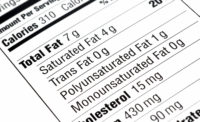The Flexible Packaging Association (FPA), Annapolis, Md., published “A Holistic View of the Role of Flexible Packaging in a Sustainable World,” a new report on sustainable packaging.
FPA commissioned PTIS, LLC, Shelbyville, Mich., to provide a holistic view on the sustainability benefits that flexible packaging offers, provide foresight into future sustainability implications for flexible packaging and develop six LCA case studies comparing flexible packaging to other packaging formats across a range of products.
The report focuses on the segment of the industry that adds significant value to flexible materials, usually by performing multiple processes such as printing, laminating multiple layers and adding coatings. It focuses on the U.S. perspective, though global data and context are utilized to provide a broader picture, and looks at the current state for flexible packaging, while also providing foresight into potential future implications.
The six different LCA case studies use the EcoImpact-COMPASS LCA software, which allows for quick life-cycle comparisons between different package formats. The results show that flexible packaging has more preferable environmental attributes for carbon impact, fossil fuel usage, water usage, product-to-package ratio as well as material to landfill when compared to other package formats.
Flexible packaging offers a number of sustainability benefits throughout the entire life cycle of the package, when compared to other package formats, including material/resource efficiency; lightweight/source reduction; transportation benefits due to inbound format and lightweight nature; shelf life extension; reduced materials to landfill; high product-to-package ratio; and beneficial life cycle metrics.
Despite the number of sustainability benefits, there are challenges facing the flexible packaging industry, including post-consumer packaging material collection and recycling. There is currently a lack of recycling options for multi-material laminated films, such as snack bags and foil pouches, which are difficult to separate into their various material substrates.
The industry is responding to these challenges with new initiatives to improve the sustainability profile of flexible packaging. These include technologies to drive recycling and collection and auto-sortation at scale of flexible materials; investigate new materials including compostable or bio-based structures; and enhance processing technologies that extend and increase consumer participation.
There are several industry collaborations working to identify technologies to make collection and sortation of flexible packaging waste feasible and economically effective, as well as research into chemical recycling. Other programs such as waste-to-energy, which use the combustible energy from difficult-to-recycle plastics, are widely used in Europe and Asia and may provide additional recovery processes in the United States.


